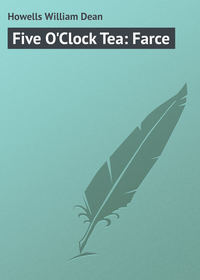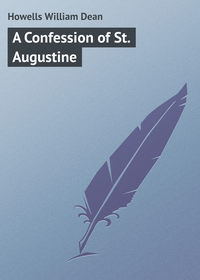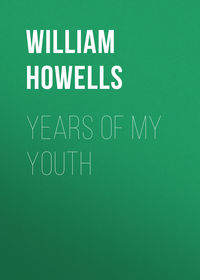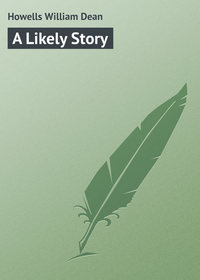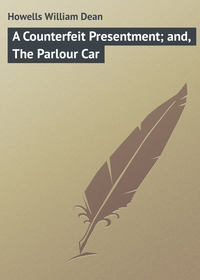 полная версия
полная версияA Boy's Town
After all, yellowhammers were the chief reliance in the chase; they were pre-occupied, unsuspecting birds, and lit on fence rails and dead trees, so that they were pretty easy to shoot. If you could bring home a yellowhammer you felt that you had something to show for your long day's tramp through the woods and fields, and for the five cents' worth of powder and five cents' worth of shot that you had fired off at other game. Sometimes you just fired it off at mullein-stalks, or barns, or anything you came to. There were a good many things you could do with a gun; you could fire your ramrod out of it, and see it sail through the air; you could fill the muzzle up with water, on top of a charge, and send the water in a straight column at a fence. The boys all believed that you could fire that column of water right through a man, and they always wanted to try whether it would go through a cow, but they were afraid the owner of the cow would find it out. There was a good deal of pleasure in cleaning your gun when it got so foul that your ramrod stuck in it and you could hardly get it out. You poured hot water into the muzzle and blew it through the nipple, till it began to show clear; then you wiped it dry with soft rags wound on your gun-screw, and then oiled it with greasy tow. Sometimes the tow would get loose from the screw, and stay in the barrel, and then you would have to pick enough powder in at the nipple to blow it out. Of course I am talking of the old muzzle-loading shot-gun, which I dare say the boys never use nowadays.
But the great pleasure of all, in hunting, was getting home tired and footsore in the evening, and smelling the supper almost as soon as you came in sight of the house. There was nearly always hot biscuit for supper, with steak, and with coffee such as nobody but a boy's mother ever knew how to make; and just as likely as not there was some kind of preserves; at any rate, there was apple-butter. You could hardly take the time to wash the powder-grime off your hands and face before you rushed to the table; and if you had brought home a yellowhammer you left it with your gun on the back porch, and perhaps the cat got it and saved you the trouble of cleaning it. A cat can clean a bird a good deal quicker than a boy can, and she does not hate to do it half as badly.
Next to the pleasure of getting home from hunting late, was the pleasure of starting early, as my boy and his brother sometimes did, to shoot ducks on the Little Reservoir in the fall. His brother had an alarm-clock, which he set at about four, and he was up the instant it rang, and pulling my boy out of bed, where he would rather have stayed than shot the largest mallard duck in the world. They raked the ashes off the bed of coals in the fireplace, and while the embers ticked and bristled, and flung out little showers of sparks, they hustled on their clothes, and ran down the back stairs into the yard with their guns. Tip, the dog, was already waiting for them there, for he seemed to know they were going that morning, and he began whimpering for joy, and twisting himself sideways up against them, and nearly wagging his tail off; and licking their hands and faces, and kissing their guns all over; he was about crazy. When they started, he knew where they were going, and he rushed ahead through the silent little sleeping town, and led the way across the wide Commons, where the cows lay in dim bulks on the grass, and the geese waddled out of his way with wild clamorous cries, till they came in sight of the Reservoir. Then Tip fell back with my boy and let the elder brother go ahead, for he always had a right to the first shot; and while he dodged down behind the bank, and crept along to the place where the ducks usually were, my boy kept a hold on Tip's collar, and took in the beautiful mystery of the early morning. The place so familiar by day was estranged to his eyes in that pale light, and he was glad of old Tip's company, for it seemed a time when there might very well be ghosts about. The water stretched a sheet of smooth, gray silver, with little tufts of mist on its surface, and through these at last he could see the ducks softly gliding to and fro, and he could catch some dreamy sound from them. His heart stood still and then jumped wildly in his breast, as the still air was startled with the rush of wings, and the water broke with the plunge of other flocks arriving. Then he began to make those bets with himself that a boy hopes he will lose: he bet that his brother would not hit any of them; he bet that he did not even see them; he bet that if he did see them and got a shot at them, they would not come back so that he could get a chance himself to kill any. It seemed to him that he had to wait an hour, and just when he was going to hollo, and tell his brother where the ducks were, the old smoothbore sent out a red flash and a white puff before he heard the report; Tip tore loose from his grasp; and he heard the splashing rise of the ducks, and the hurtling rush of their wings; and he ran forward, yelling, "How many did you hit? Where are they? Where are you? Are they coming back? It's my turn now!" and making an outcry that would have frightened away a fleet of ironclads, but much less a flock of ducks.
One shot always ended the morning's sport, and there were always good reasons why this shot never killed anything.
XIV.
FORAGING
The foraging began with the first relenting days of winter, which usually came in February. Then the boys began to go to the woods to get sugar-water, as they called the maple sap, and they gave whole Saturdays to it as long as the sap would run. It took at least five or six boys to go for sugar-water, and they always had to get a boy whose father had an auger to come along, so as to have something to bore the trees with. On their way to the woods they had to stop at an elder thicket to get elder-wood to make spiles of, and at a straw pile to cut straws to suck the sap through, if the spiles would not work. They always brought lots of tin buckets to take the sap home in, and the big boys made the little fellows carry these, for they had to keep their own hands free to whittle the elder sticks into the form of spouts, and to push the pith out and make them hollow. They talked loudly and all at once, and they ran a good deal of the way, from the excitement. If it was a good sugar-day, there were patches of snow still in the fence corners and shady places, which they searched for rabbit-tracks; but the air was so warm that they wanted to take their shoes off, and begin going barefoot at once. Overhead, the sky was a sort of pale, milky blue, with the sun burning softly through it, and casting faint shadows. When they got into the woods, it was cooler, and there were more patches of snow, with bird-tracks and squirrel-tracks in them. They could hear the blue-jays snarling at one another, and the yellowhammer chuckling; on some dead tree a redheaded woodpecker hammered noisily, and if the boys had only had a gun with them they could have killed lots of things. Now and then they passed near some woodchoppers, whose axes made a pleasant sound, without frightening any of the wild things, they had got so used to them; sometimes the boys heard the long hollow crash of a tree they were felling. But all the time they kept looking out for a good sugar-tree, and when they saw a maple stained black from the branches down with the sap running from the little holes that the sap-suckers had made, they burst into a shout, and dashed forward, and the fellow with the auger began to bore away, while the other fellows stood round and told him how, and wanted to make him let them do it. Up and down the tree there was a soft murmur from the bees that had found it out before the boys, and every now and then they wove through the air the straight lines of their coming and going, and made the fellows wish they could find a bee-tree. But for the present these were intent upon the sugar-tree, and kept hurrying up the boy with the auger. When he had bored in deep enough, they tried to fit a spile to the hole, but it was nearly always crooked and too big, or else it pointed downward and the water would not run up through the spile. Then some of them got out their straws, and began to suck the sap up from the hole through them, and to quarrel and push, till they agreed to take turn-about, and others got the auger and bunted for another blackened tree. They never could get their spiles to work, and the water gathered so slowly in the holes they bored, and some of the fellows took such long turns, that it was very little fun. They tried to get some good out of the small holes the sap-suckers had made, but there were only a few drops in them, mixed with bark and moss. If it had not been for the woodchoppers, foraging for sugar-water would always have been a failure; but one of them was pretty sure to come up with his axe in his hand, and show the boys how to get the water. He would choose one of the roots near the foot of the tree, and chop a clean, square hole in it; the sap flew at each stroke of his axe, and it rose so fast in the well he made that the thirstiest boy could not keep it down, and three or four boys, with their heads jammed tight together and their straws plunged into its depths, lay stretched upon their stomachs and drank their fill at once. When every one was satisfied, or as nearly satisfied as a boy can ever be, they began to think how they could carry some of the sugar-water home. But by this time it would be pretty late in the afternoon; and they would have to put it off till some other day, when they intended to bring something to dip the water out with; the buckets they had brought were all too big. Then, if they could get enough, they meant to boil it down and make sugar-wax. I never knew of any boys who did so.
The next thing after going for sugar-water was gathering may-apples, as they called the fruit of the mandrake in that country. They grew to their full size, nearly as large as a pullet's egg, some time in June, and they were gathered green, and carried home to be ripened in the cornmeal-barrel. The boys usually forgot about them before they were ripe; when now and then one was remembered, it was a thin, watery, sour thing at the best. But the boys gathered them every spring, in the pleasant open woods where they grew, just beyond the densest shade of the trees, among the tall, straggling grasses; and they had that joyous sense of the bounty of nature in hoarding them up which is one of the sweetest and dearest experiences of childhood. Through this the boy comes close to the heart of the mother of us all, and rejoices in the wealth she never grudges to those who are willing to be merely rich enough.
There were not many wild berries in the country near the Boy's Town, or what seemed near; but sometimes my boy's father took him a great way off to a region, long lost from the map, where there were blackberries. The swimming lasted so late into September, however, that the boys began to go for nuts almost as soon as they left off going into the water. They began with the little acorns that they called chinquepins, and that were such a pretty black, streaked upward from the cup with yellow, that they gathered them half for the unconscious pleasure of their beauty. They were rather bitter, and they puckered your mouth; but still you ate them. They were easy to knock off the low oaks where they grew, and they were so plentiful that you could get a peck of them in no time. There was no need of anybody's climbing a tree to shake them; but one day the boys got to telling what they would do if a bear came, and one of them climbed a chinquepin-tree to show how he would get out on such a small limb that the bear would be afraid to follow him; and he went so far out on the limb that it broke under him. Perhaps he was heavier than he would have been if he had not been carrying the load of guilt which must burden a boy who is playing hookey. At any rate, he fell to the ground, and lay there helpless while the other boys gathered round him, and shared all the alarm he felt for his life. His despair of now hiding the fact that he had been playing hookey was his own affair, but they reasoned with him that the offence would be overlooked in the anxiety which his disaster must arouse. He was prepared to make the most of this, and his groans grew louder as he drew near home in the arms of the boys who took turns, two and two, in carrying him the whole long way from Dayton Lane, with a terrified procession of alternates behind them. These all ran as soon as they came in sight of his house and left the last pair to deliver him to his mother. They never knew whether she forgave him fully, or merely waited till he got well. You never could tell how a boy's mother was going to act in any given case; mothers were so very apt to act differently.
Red haws came a little before chinquepins. The trees grew mostly by the First Lock, and the boys gathered the haws when they came out from swimming in the canal. They did not take bags to gather haws, as they did chinquepins; the fruit was not thought worthy of that honor; but they filled their pockets with them and ate them on the way home. They were rather nice, with a pleasant taste between a small apple and a rose seed-pod; only you had to throw most of them away because they were wormy. Once when the fellows were gathering haws out there they began to have fun with a flock of turkeys, especially the gobblers, and one boy got an old gobbler to following him while he walked slowly backward, and teased him. The other boys would not have told him for anything when they saw him backing against a low stump. When he reached it, his head went down and his heels flew into the air, and then the gobbler hopped upon him and began to have some of the fun himself. The boys always thought that if they had not rushed up all together and scared the gobbler off, he would have torn the boy to pieces, but very likely he would not. He probably intended just to have fun with him.
The woods were pretty full of the kind of hickory-trees called pignuts, and the boys gathered the nuts, and even ate their small, bitter kernels; and around the Poor-House woods there were some shag-barks, but the boys did not go for them because of the bull and the crazy people. Their great and constant reliance in foraging was the abundance of black walnuts which grew everywhere, along the roads and on the river-banks, as well as in the woods and the pastures. Long before it was time to go walnutting, the boys began knocking off the nuts and trying whether they were ripe enough; and just as soon as the kernels began to fill out, the fellows began making walnut wagons. I do not know why it was thought necessary to have a wagon to gather walnuts, but I know that it was, and that a boy had to make a new wagon every year. No boy's walnut wagon could last till the next year; it did very well if it lasted till the next day. He had to make it nearly all with his pocket-knife. He could use a saw to block the wheels out of a pine board, and he could use a hatchet to rough off the corners of the blocks, but he had to use his knife to give them any sort of roundness, and they were not very round then; they were apt to be oval in shape, and they always wabbled. He whittled the axles out with his knife, and he made the hubs with it. He could get a tongue ready-made if he used a broom-handle or a hoop-pole, but that had in either case to be whittled so it could be fastened to the wagon; he even bored the linchpin holes with his knife if he could not get a gimlet; and if he could not get an auger, he bored the holes through the wheels with a red-hot poker, and then whittled them large enough with his knife. He had to use pine for nearly everything, because any other wood was too hard to whittle; and then the pine was always splitting. It split in the axles when he was making the linchpin holes, and the wheels had to be kept on by linchpins that were tied in; the wheels themselves split, and had to be strengthened by slats nailed across the rifts. The wagon-bed was a candle-box nailed to the axles, and that kept the front-axle tight, so that it took the whole width of a street to turn a very little wagon in without upsetting.
When the wagon was all done, the boy who owned it started off with his brothers, or some other boys who had no wagon, to gather walnuts. He started early in the morning of some bright autumn day while the frost still bearded the grass in the back-yard, and bristled on the fence-tops and the roof of the wood-shed, and hurried off to the woods so as to get there before the other boys had got the walnuts. The best place for them was in some woods-pasture where the trees stood free of one another, and around them, in among the tall, frosty grass, the tumbled nuts lay scattered in groups of twos and threes, or fives, some still yellowish-green in their hulls, and some black, but all sending up to the nostrils of the delighted boy the incense of their clean, keen, wild-woody smell, to be a memory forever. The leaves had dropped from the trees overhead, and the branches outlined themselves against the blue sky, and dangled from their outer stems clusters of the unfallen fruit, as large as oranges, and only wanting a touch to send them plumping down into the grass where sometimes their fat hulls burst, and the nuts almost leaped into the boys' hands. The boys ran, some of them to gather the fallen nuts, and others to get clubs and rocks to beat them from the trees; one was sure to throw off his jacket and kick off his shoes and climb the tree to shake every limb where a walnut was still clinging. When they had got them all heaped up like a pile of grape-shot at the foot of the tree, they began to hull them, with blows of a stick, or with stones, and to pick the nuts from the hulls, where the grubs were battening on their assured ripeness, and to toss them into a little heap, a very little heap indeed compared with the bulk of that they came from. The boys gloried in getting as much walnut stain on their hands as they could, for it would not wash off, and it showed for days that they had been walnutting; sometimes they got to staining one another's faces with the juice, and pretending they were Indians.
The sun rose higher and higher, and burned the frost from the grass, and while the boys worked and yelled and chattered they got hotter and hotter, and began to take off their shoes and stockings, till every one of them was barefoot. Then, about three or four o'clock, they would start homeward, with half a bushel of walnuts in their wagon, and their shoes and stockings piled in on top of them. That is, if they had good luck. In a story, they would always have had good luck, and always gone home with half a bushel of walnuts; but this is a history, and so I have to own that they usually went home with about two quarts of walnuts rattling round under their shoes and stockings in the bottom of the wagon. They usually had no such easy time getting them as they always would in a story; they did not find them under the trees, or ready to drop off, but they had to knock them off with about six or seven clubs or rocks to every walnut, and they had to pound the hulls so hard to get the nuts out that sometimes they cracked the nuts. That was because they usually went walnutting before the walnuts were ripe. But they made just as much preparation for drying the nuts on the wood-shed roof whether they got half a gallon or half a bushel; for they did not intend to stop gathering them till they had two or three barrels. They nailed a cleat across the roof to keep them from rolling off, and they spread them out thin, so that they could look more than they were, and dry better. They said they were going to keep them for Christmas, but they had to try pretty nearly every hour or so whether they were getting dry, and in about three days they were all eaten up.
I dare say boys are very different nowadays, and do everything they say they are going to do, and carry out all their undertakings. But in that day they never carried out any of their undertakings. Perhaps they undertook too much; but the failure was a part of the pleasure of undertaking a great deal, and if they had not failed they would have left nothing for the men to do; and a more disgusting thing than a world full of idle men who had done everything there was to do while they were boys, I cannot imagine. The fact is, boys have to leave a little for men to do, or else the race would go to ruin; and this almost makes me half believe that perhaps even the boys of the present time may be prevented from doing quite as much as they think they are going to do, until they grow up. Even then they may not want to do it all, but only a small part of it. I have noticed that men do not undertake half so many things as boys do; and instead of wanting to be circus-actors and Indians, and soldiers, and boat-drivers, and politicians and robbers, and to run off, and go in swimming all the time, and out hunting and walnutting, they keep to a very few things, and are glad then if they can do them. It is very curious, but it is true; and I advise any boy who doubts it to watch his father awhile.
XV.
MY BOY
Every boy is two or three boys, or twenty or thirty different kinds of boys in one; he is all the time living many lives and forming many characters; but it is a good thing if he can keep one life and one character when he gets to be a man. He may turn out to be like an onion when he is grown up, and be nothing but hulls, that you keep peeling off, one after another, till you think you have got down to the heart, at last, and then you have got down to nothing.
All the boys may have been like my boy in the Boy's Town, in having each an inward being that was not the least like their outward being, but that somehow seemed to be their real self, whether it truly was so or not. But I am certain that this was the case with him, and that while he was joyfully sharing the wild sports and conforming to the savage usages of the boy's world about him, he was dwelling in a wholly different world within him, whose wonders no one else knew. I could not tell now these wonders any more than he could have told them then; but it was a world of dreams, of hopes, of purposes, which he would have been more ashamed to avow for himself than I should be to avow for him. It was all vague and vast, and it came out of the books that he read, and that filled his soul with their witchery, and often held him aloof with their charm in the midst of the plays from which they could not lure him wholly away, or at all away. He did not know how or when their enchantment began, and he could hardly recall the names of some of them afterwards. First of them was Goldsmith's "History of Greece," which made him an Athenian of Pericles's time, and Goldsmith's "History of Rome," which naturalized him in a Roman citizenship chiefly employed in slaying tyrants; from the time of Appius Claudius down to the time of Domitian, there was hardly a tyrant that he did not slay. After he had read these books, not once or twice, but twenty times over, his father thought fit to put into his hands "The Travels of Captain Ashe in North America," to encourage, or perhaps to test, his taste for useful reading; but this was a failure. The captain's travels were printed with long esses, and the boy could make nothing of them, for other reasons. The fancy nourished upon starved amidst the robust plenty of the Englishman's criticisms of our early manners and customs. Neither could money hire the boy to read "Malte-Brun's Geography," in three large folios, of a thousand pages each, for which there was a standing offer of fifty cents from the father, who had never been able to read it himself. But shortly after he failed so miserably with Captain Ashe, the boy came into possession of a priceless treasure. It was that little treatise on "Greek and Roman Mythology" which I have mentioned, and which he must literally have worn out with reading, since no fragment of it seems to have survived his boyhood. Heaven knows who wrote it or published it; his father bought it with a number of other books at an auction, and the boy, who had about that time discovered the chapter on prosody in the back part of his grammar, made poems from it for years, and appeared in many transfigurations, as this and that god and demigod and hero upon imagined occasions in the Boy's Town, to the fancied admiration of all the other fellows. I do not know just why he wished to appear to his grandmother in a vision; now as Mercury with winged feet, now as Apollo with his drawn bow, now as Hercules leaning upon his club and resting from his Twelve Labors. Perhaps it was because he thought that his grandmother, who used to tell the children about her life in Wales, and show them the picture of a castle where she had once slept when she was a girl, would appreciate him in these apotheoses. If he believed they would make a vivid impression upon the sweet old Quaker lady, no doubt he was right.


